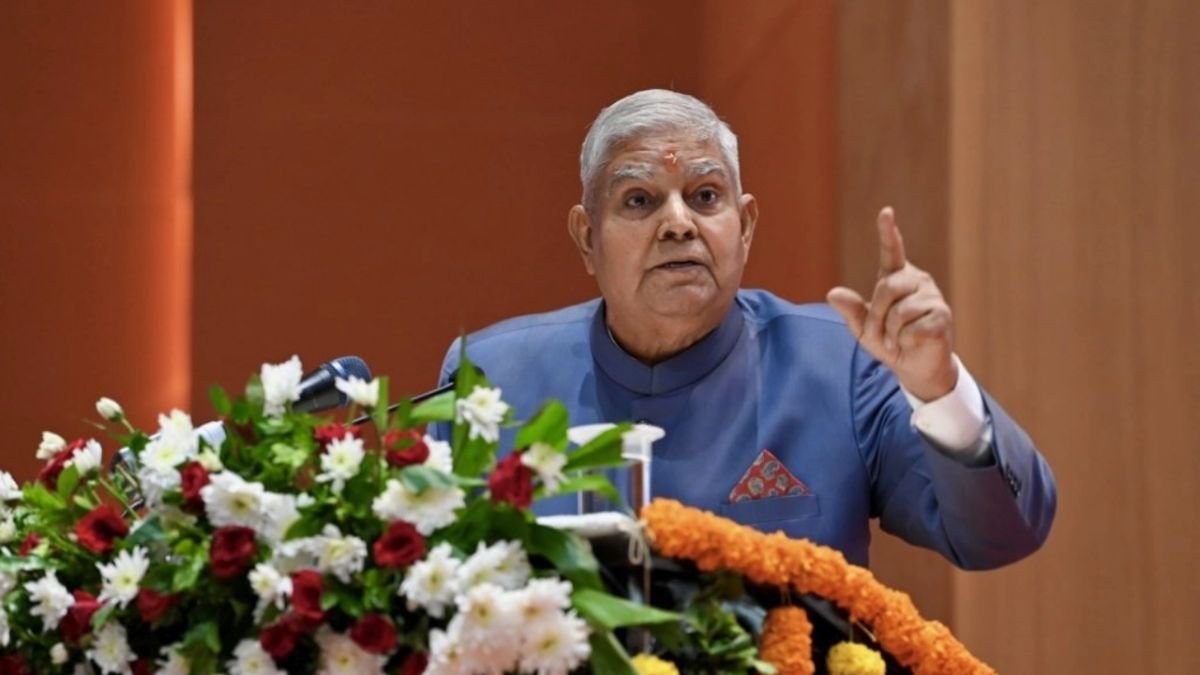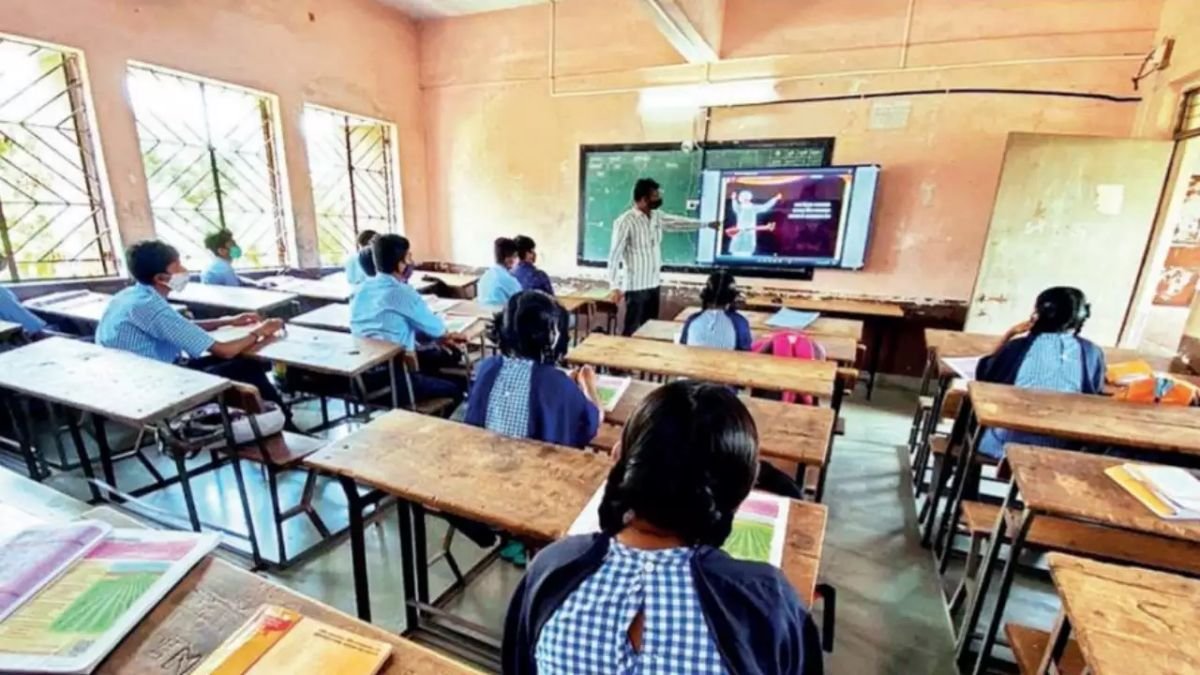Kapil Sibal Slams Vice President Dhankhar’s Judiciary Remarks With Indira Gandhi Case Reference
Vice President Dhankhar's sharp comments on judicial overreach have sparked a major backlash, with Kapil Sibal invoking the 1975 Indira Gandhi verdict to defend judicial independence.

Key Highlights:
Vice President Dhankhar has found himself at the center of a political storm after publicly criticizing the judiciary’s interpretation of Article 142 of the Indian Constitution. His statements questioning the authority of the courts in issuing directives to the President have drawn sharp reactions from legal and political circles.
Speaking at a public event, Vice President Jagdeep Dhankhar labeled the use of Article 142 as a “nuclear missile” in the hands of the judiciary, alleging that courts were now behaving like a “super Parliament” and overstepping their constitutional role. This sparked immediate backlash from senior legal minds, including Kapil Sibal, who challenged the constitutional logic behind Dhankhar’s claims.
Vice President Dhankhar Questions Judicial Oversight
Vice President Dhankhar’s remarks focused on a recent Supreme Court directive asking the President of India to act within a three-month window on bills reserved by state governors. He questioned whether the judiciary had the right to compel the President, hinting that this may erode the sanctity of the separation of powers.
Dhankhar remarked,
“The judiciary seems to be taking over the domain of the executive by issuing directions to the President. Are we heading toward a super-Parliament?”
His views triggered widespread discussion about constitutional limits and the balance between different branches of governance.
Kapil Sibal Rebuts with Indira Gandhi Verdict
Senior advocate and Rajya Sabha MP Kapil Sibal quickly responded to Dhankhar’s statements, calling them unfounded and misleading. He drew attention to the historic 1975 case in which the Supreme Court invalidated then Prime Minister Indira Gandhi’s election— a judgment that was accepted with dignity despite its political implications.
“A single judge in 1975 could strike down the Prime Minister’s election. Today, even a two-judge bench issuing a measured directive is being questioned,” Sibal argued.
He emphasized that the President is constitutionally bound to act on the aid and advice of the Council of Ministers, thereby rendering Dhankhar’s argument constitutionally inaccurate.
Focus Keyword Appears in This Subheading
Vice President Dhankhar’s Remarks Spark Fresh Constitutional Debate
Legal experts assert that the real question is not about whether the judiciary can issue directives but rather whether such directives are consistent with the principles of justice and democracy. Article 142 gives the Supreme Court the power to “pass such decree or make such order as is necessary for doing complete justice.”
This provision has been a cornerstone in several landmark judgments, from electoral disputes to environmental issues. However, Vice President Dhankhar’s interpretation paints it as an overreach tool, a claim many experts say lacks legal basis.
Political Implications and Public Response
While Dhankhar’s remarks align with a growing narrative of judicial restraint, opposition leaders and civil society members have expressed concern that such rhetoric undermines the judiciary’s independence. Public trust in the Supreme Court remains high, and attempts to cast doubt on its integrity could erode faith in democratic institutions.
Sibal cautioned that these remarks may set a dangerous precedent if left unchallenged:
“Let us not forget that the judiciary remains the last line of defense for the citizen.”
What This Means for You
- There is no change in the legal powers of the Supreme Court; Article 142 remains fully valid.
- Vice President Dhankhar’s remarks do not reflect any government policy, only personal opinion.
- The judiciary retains full authority to issue directives in the interest of justice.
- Citizens can continue to trust the courts as an independent arm of democracy.
How to Take Action
- Stay informed by reading verified constitutional commentary and following court verdicts.
- Avoid reacting to political rhetoric until official policies or judgments are published.
- Participate in civic discussions to uphold the importance of judicial independence.
Who Will Be Affected
- The legal and political fraternity may continue engaging in debates on judicial powers.
- Civically engaged citizens and students of law will closely watch the unfolding legal interpretations.
- The issue may influence how future constitutional directives from courts are publicly perceived.
Judicial Independence Remains Intact Despite Vice President Dhankhar’s Critique
Despite the charged atmosphere surrounding Vice President Dhankhar’s comments, experts from across the legal and political spectrum agree: the judiciary remains a central and independent pillar of India’s democracy. With Article 142 still firmly entrenched in constitutional practice, no structural changes are expected.
What this incident reveals, however, is the growing scrutiny over the judiciary’s role in India’s governance—and the continued relevance of defending its independence against all forms of political influence.
Stay updated with the latest from Hindustan Herald — your trusted source for
Politics, Business, Sports, Entertainment, Lifestyle, Breaking News, and More.
📲 Follow us on Facebook, Instagram, Twitter, LinkedIn, and YouTube
🔔 Join our Telegram channel @hindustanherald for real-time news alerts.







![ICAI Announces Historic Change: CA Final Exams to Be Held Thrice a Year Starting 2025 JSSC Exam Calendar 2025 Out: Full List of Upcoming Jharkhand Govt Exams – Check PDF Now [Major Update] KPSC Mains Admit Card](https://hindustanherald.com/wp-content/uploads/2025/03/icai-to-conduct-ca-final-exams-thrice-a-year-from-2025-major-change-for-aspirants-2025-03-28_00-16-34_233596-image.png)


